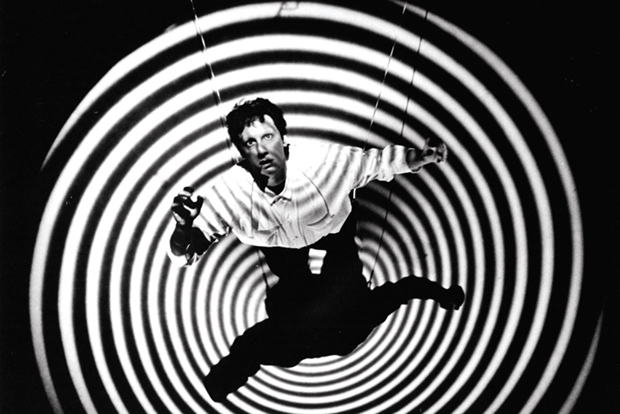Thinking Out Loud: Robert Lepage returns
 Needles and Opium, an early Robert Lepage triumph. | Image courtesy of the artist
Needles and Opium, an early Robert Lepage triumph. | Image courtesy of the artist
Perhaps nobody knows more about the need for versatile artists with multidisciplinary knowledge, training, and expertise than Robert Lepage.
The influential Québécois director, playwright, actor and film director received an honorary doctorate from Concordia in 1999. On March 30, he is returning to the university to discuss performance creation with Silvy Panet-Raymond, a professor in the Department of Contemporary Dance.
The annual Mary-Ann Beckett Baxter Memorial Lecture, presented in conjunction with Thinking Out Loud, Concordia’s Ideas Festival, comes after last year’s announcement of the university’s new Specialization in Performance Creation.
In anticipation of the evening talk, we compiled some of Lepage’s published thoughts on theatre.
Trailer for The Image Mill, created by Ex Machina — Robert Lepage’s multidisciplinary production company — for the 400th anniversary of Quebec City.
Theatre’s origins
"Everybody has these explanations of how theatre started. There are many tales, many myths, but the one that suits me the best is the idea that gazillions of years ago, people gathered in a quarry, made a big bonfire, and told stories to each other. And eventually somebody had the idea of standing up and using his shadow to tell the story, and that’s how theatre was born… from that moment of man realizing that he can create figures that are larger than life.”
The official trailer for Quills, the latest production from Ex Machina.
Finding theatre
“I always wanted to express myself artistically, but most artistic disciplines were very individual. Whether it was painting, music or writing, it was very exposing. What I liked about theatre is that you could hide behind a group.
“When I first saw people on stage perform, it was a high school play at a girl’s school. They were playing both men and women. It was the most amazing moment in my life, and I thought, I want to do this. This is what I want to do.
“There’s something naïve and childish about the whole process — putting on costumes and doing make believe — but … if you know how to sculpt it, how to edit it, how to perform it, there’s something very powerful going on there.”
Source: Festival Portraits: Edinburgh International Festival.
Official trailer for Ex Machina’s Needles and Opium.
Shakespeare, and writing for the ‘meat grinder’
“Everybody has this image of “Shakespeare in Love.” He’s in this ivory tower with a quill and he’s writing about his muse… Of course, nothing could be more false than that.
“Shakespeare was a man of the theatre. If he did exist, he was a designer, he was a director, and he had to make the thing work.
“There’s this thing, where the plays today that are written have never been put into the meat grinder of something called the production. It’s exactly the opposite of what happened in Shakespeare’s days.
A lot of work we do involves that — all of the dramaturgical solutions are always intimately connected to the technical solutions… Good theatre has both its form and its content working together, meshed together.”
Official Trailer for Ex Machina’s Playing Cards (Hearts).
Being open to change
“Opening night should not be a guillotine. It should not be, this is the show and nothing changes. This is the show, and from now on everything changes. Of course, I drive all of the actors crazy, because I like to let things cook a while.”
“We let it cook for a week of performances, let’s say, and then it kind of finds its shape. Then we know what it’s about, but then we change everything. We cut it up, and then it cooks for another week of performances. Then they go on tour, and they’re happy because there are no changes for about a month.
“Then I come along, and say, ‘Oh let’s change this. It doesn’t work.’ Then we change it again. We do that, until the very last performance. We consider the piece written on the very night of closing. That’s when it should be called written. It’s not on the first day, it’s on the very, very last day.”
Source: Robert Lepage at the Banff Centre in 2014.
Find out more about this season’s Thinking Out Loud events at Concordia.



